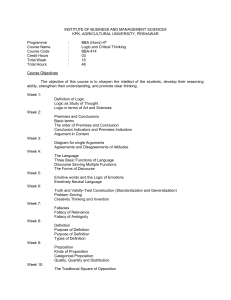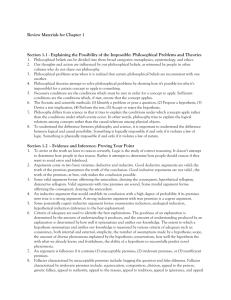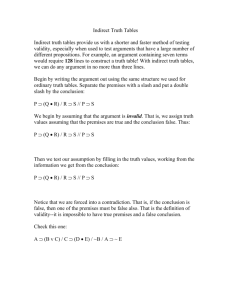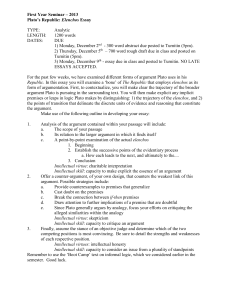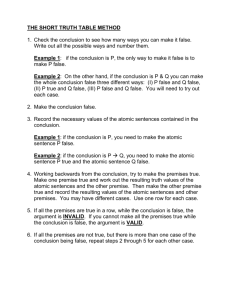here - Andreas Keller Olfaction
advertisement
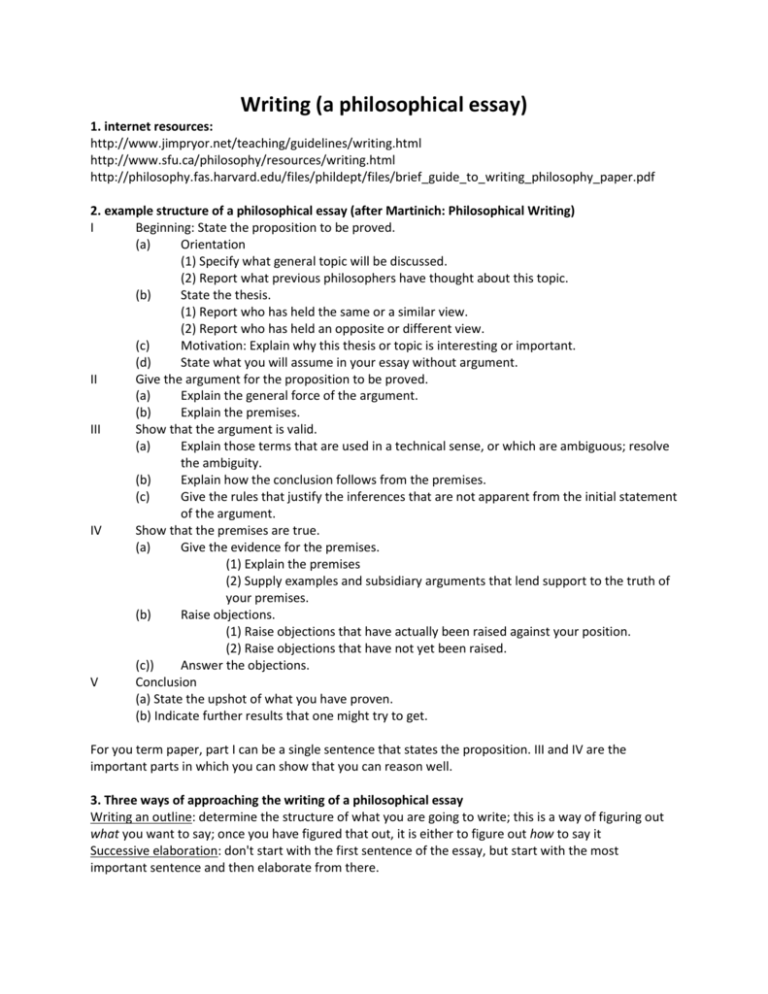
Writing (a philosophical essay) 1. internet resources: http://www.jimpryor.net/teaching/guidelines/writing.html http://www.sfu.ca/philosophy/resources/writing.html http://philosophy.fas.harvard.edu/files/phildept/files/brief_guide_to_writing_philosophy_paper.pdf 2. example structure of a philosophical essay (after Martinich: Philosophical Writing) I Beginning: State the proposition to be proved. (a) Orientation (1) Specify what general topic will be discussed. (2) Report what previous philosophers have thought about this topic. (b) State the thesis. (1) Report who has held the same or a similar view. (2) Report who has held an opposite or different view. (c) Motivation: Explain why this thesis or topic is interesting or important. (d) State what you will assume in your essay without argument. II Give the argument for the proposition to be proved. (a) Explain the general force of the argument. (b) Explain the premises. III Show that the argument is valid. (a) Explain those terms that are used in a technical sense, or which are ambiguous; resolve the ambiguity. (b) Explain how the conclusion follows from the premises. (c) Give the rules that justify the inferences that are not apparent from the initial statement of the argument. IV Show that the premises are true. (a) Give the evidence for the premises. (1) Explain the premises (2) Supply examples and subsidiary arguments that lend support to the truth of your premises. (b) Raise objections. (1) Raise objections that have actually been raised against your position. (2) Raise objections that have not yet been raised. (c)) Answer the objections. V Conclusion (a) State the upshot of what you have proven. (b) Indicate further results that one might try to get. For you term paper, part I can be a single sentence that states the proposition. III and IV are the important parts in which you can show that you can reason well. 3. Three ways of approaching the writing of a philosophical essay Writing an outline: determine the structure of what you are going to write; this is a way of figuring out what you want to say; once you have figured that out, it is either to figure out how to say it Successive elaboration: don't start with the first sentence of the essay, but start with the most important sentence and then elaborate from there. Brain-storming: just sit down and start writing about the topic; write whatever comes to mind and see where it takes you; keep starting over 4. Strategies for analytic writing (after Martinich: Philosophical Writing) Definitions/Analysis Distinctions (mutually exclusive and exhaustive) Dilemmas Counterexamples Reductio ad Absurdum (If proposition A entails a false proposition B, then the first proposition must also be false and its negation must be true) 5. Some more specific points on writing a philosophical essay - know your audience - keep the list of fallacies that I handed out in mind; avoid fallacies - aim for coherence, clarity, and conciseness - it is better to bring up an objection yourself than to hope that the reader won't think of it - make the structure of your paper obvious/transparent; use connective words (because; nevertheless; on the other hand); use signposts (I will begin..., These passages suggest..., Further support for this claim comes from...) 6. Write a simple outline for: Is it possible for somebody to know whether another being (their friend, a crow, a robot) is conscious? I II III IV Beginning: State the proposition to be proved. Give the argument for the proposition to be proved. Show that the argument is valid. (b) Explain how the conclusion follows from the premises. Show that the premises are true. (a) Give the evidence for the premises. (b) Raise an objection. (c) Answer the objection.
